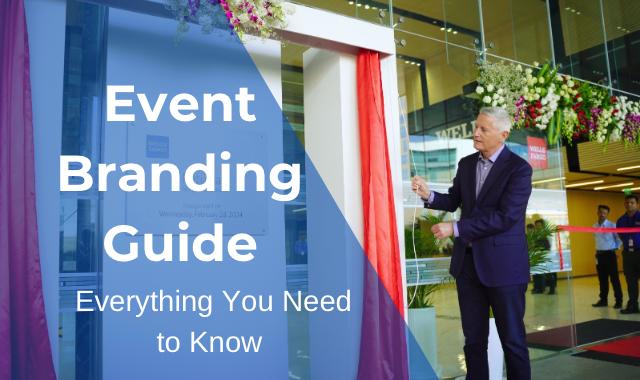Months of hard work, back and forth emails, hundreds of phone calls, and endless setup rehearsals, and every detail polished to perfection. This happens in every event planning and management. but what makes your event so special and recognised widely?
It’s simple. The magic lies in how you tell your story to the people. And the ultimate storyteller for your event? Yes, it is social media.
Why Social Media is so Integral to Event Success?
It is the digital footprint of your event that keeps people talking long after the guest leaves. Social media is the bridge that shares your efforts with the global audience.
Each post, story and hashtag becomes a little teaser, sparking curiosity and making people think, “I don’t want to miss this.”
On the event day, every photo, live update, and tagged post turns your event into a real-time experience far beyond the venue. Your event becomes not just seen but remembered.
- How to create a social media plan for your events.
- Social media event strategy
- Social media strategies before the event
- Social media strategies during the event
- Social media channels to use for marketing events.
- Crafting your social media plan
How Do You Create a Social Media Plan for Your Events?
Creating a social media plan for your events makes all the difference. Social media plans for corporate events involves a mix of strategy, professionalism, and audience engagement that talks more about a business-focussed crowd.
1) What Are the Main Objectives of The Event?
Need more audience for the event, emphasise registration links, countdowns, and speaker announcements to generate interest and commitment.
For example, if your goal is lead generation, focus on LinkedIn. Connect with people through posts, polls, and fascinating carousels that discuss industrial value and showcase your organisation’s expertise.
For example, if your goal is lead generation, focus on LinkedIn. Connect with people through posts, polls, and fascinating carousels that discuss industrial value and showcase your organisation’s expertise.
2. Define Your Audience Segments
Corporate events cater to specific professional audiences like CEOs, mid-level managers, or industry experts. While planning your event strategy, try to understand the pain points in the industry and the platforms to choose from.
For example, if you are hosting a tech conference for IT professionals, focus on social media platforms like LinkedIn and Twitter. These two platforms share industry updates, and business networking is common.
3. Choose Platform That Matches Professional Preferences
Corporate audiences most likely use LinkedIn, X, and Facebook to build authority and create a professional presence. Use these platforms wisely for event announcements, networking discussions and real-time updates.
4. A Content Calendar with Strategic Phases
Use a phased content approach for corporate events that include pre-event, during the event and post-event stages.
5. Professional Hashtags and Event-Specific Tags
Use professional, unique, and relevant hashtags for the event. You can also create event-specific hashtags and use them across platforms, encouraging participants to do the same. Incorporating industry–related hashtags will increase the visibility among professionals who are not following your brand.
For example, if you are hosting an international business conference, use tags like #globalbusiness summit2025 and #internationalbuisnessconference, along with industry-related tags.
6. Incorporate Industry Influencers and Speakers
Prominent speakers and industry leaders or influencers will help you reach a wide range of audiences. Ask them to post about their participation or highlights of the event on their social media pages.
Pre-event interviews and Q&A sessions will generate an audience and offer valuable insights into the event.
7. Use Targeted Paid Ads on X and LinkedIn
Corporate audiences respond well to targeted advertising, especially when the post is tailored to professional needs. LinkedIn Ads and X Ads will amplify the event with more registrations and highlights to the professional audience.
8. Engagement Is More Than Likes and Shares
Engagement is important in corporate events. It builds credibility and fosters professional conversations. Respond to comments with professional courtesy and encourage attendees to share their experiences in real-time.
9. Measure Results and Gather Insights
Once the event is complete, analyse the social media performance to understand what worked and where you can improve. Check engagement rate, conversion rate, and hashtag performance.
10. Repurpose Content for maximum Event ROI
Corporate events will generate a wealth of valuable content. There is a lot to use, like event highlights, session insights, attendee testimonials and every section of each session.
Social Media Event Strategy
Understanding the event’s branding strategy and creating your event planning objectives is what an event management company does for most corporate events. Use a structured approach to maximise the digital approach. Social media is a powerful tool for event promotions. Create an event strategy with platforms in mind.
Social Media Strategies Before the Event
The pre-event strategy sets the tone for the event on social media platforms. Try to convince people to attend the event. At this phase, use the event location, theme, and concept to generate excitement. A simple event décor detail is valuable content for the post and to attract more attendees.
What should you do?
- Enhance brand ticket sales and community engagement.
- Tease the event location, lineup of speakers and unique aspects of the event.
- Create a hashtag for the event that consolidates the event and encourages attendees to share the posts.
- Use Paid Ads, such as targeted Ads, to reach specific audience segments.
Social Media During the Event
Active engagement with the attendees will amplify the event’s energy online. Real-time interactions enhance the experience for attendees who couldn’t make it.
What should you do?
- Go live on Key Social Media Channels.
- Share real-time updates and unique exhibits in the event.
- Engage with attendees, respond to comments, and create pools.
- Collaborate with Influencers or Industry leaders.
Social Media Strategies After The Event
After the end of corporate events, ensure to keep the momentum going and share lasting impressions.
Share the event highlights and recap posts, gather testimonials from attendees about their experiences, and repurpose event content. It is always beneficial to share recorded sessions or key takeaways. Create a follow-up with the post-event networking group.
Use social media channels like LinkedIn, X, Instagram, Facebook and YouTube to repurpose event content and build a library of resources.
Crafting Your Social Media Plan
Create a social media plan with a detailed, actionable, and structured theme for all event stages.
- Define your social media objectives based on the growth.
- Map out a timeline of posts
- Establish the KPIs and metrics
- Allocate resources for live coverage and real-time engagement
- Create a hashtag strategy
- Let the conversation get going after the event.
With a strategic media plan in place, the event can achieve greater visibility, engagement, and long-term impact.
With a strategic media plan in place, the event can achieve greater visibility, engagement, and long-term impact.




